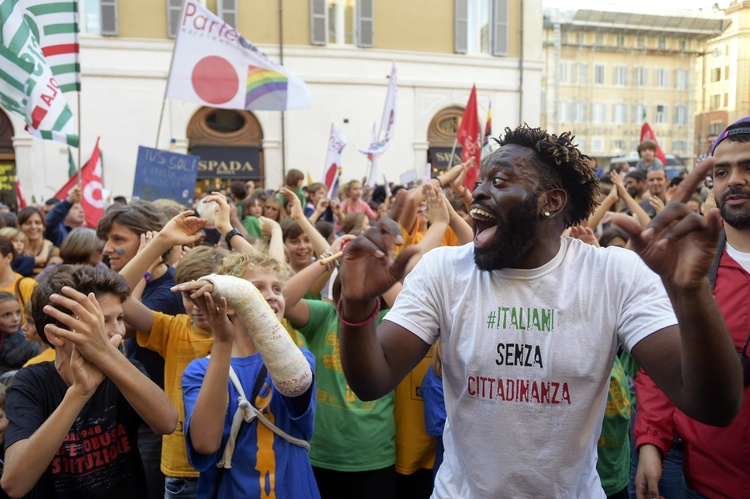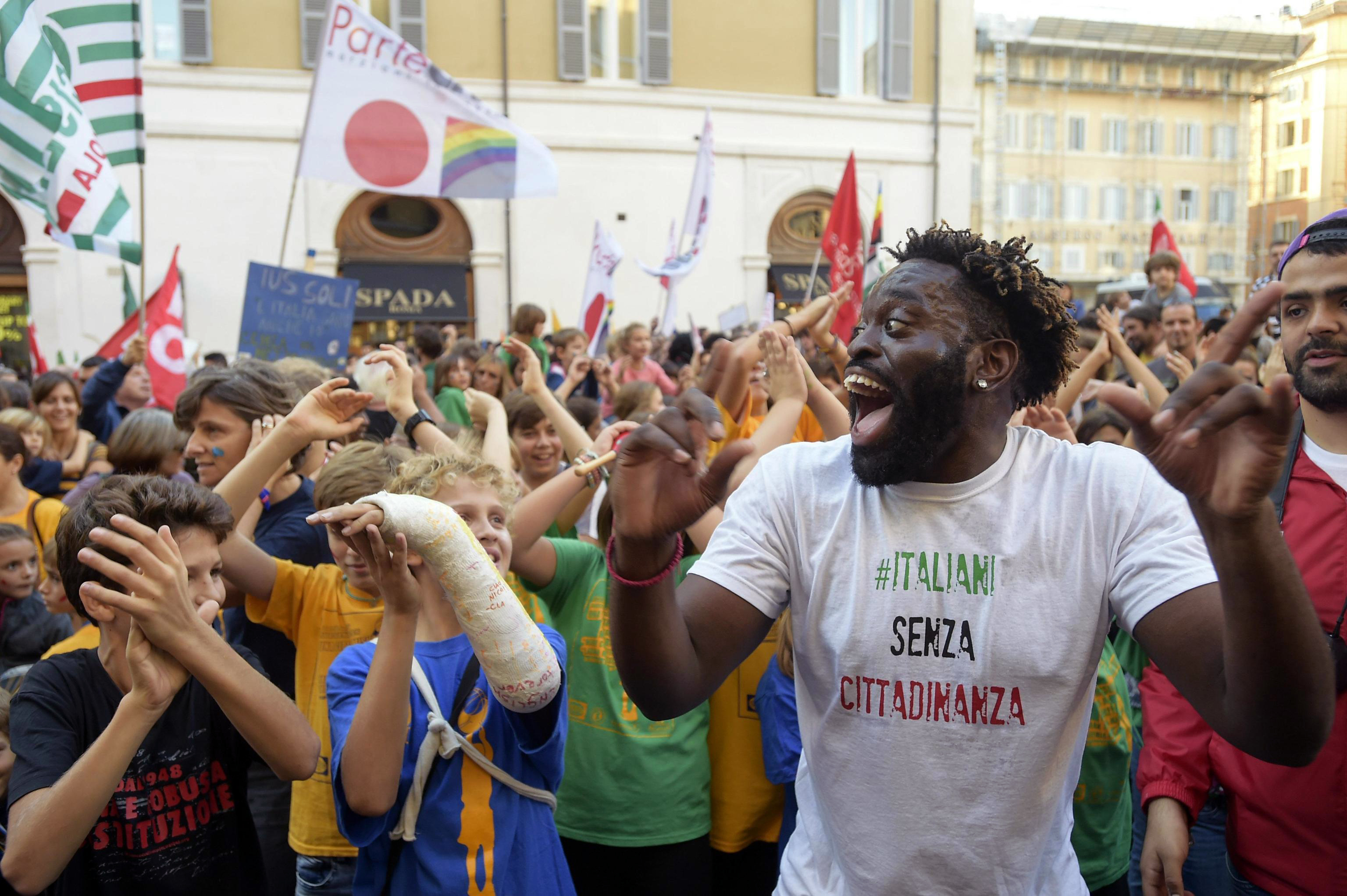“Ius soli!”, the Latin term which literally means “right of soil”, or birthright citizenship, has become the new rallying cry among the children of Italy’s 5.3 million legal immigrants, who are denied the right to apply for citizenship until they are 18 years old.
The current law allows Italian citizenship to be granted automatically only to those born to Italian parents.
Anyone born in Italy can apply for citizenship at the age of 18, on condition of having legally lived there “without interruption”.
However, the process must be launched before they turn 19.
Up until that point, they are given residence permits.
If that window is missed, people can also become a citizen on the grounds of legal residency for a decade and on the condition of a minimum income of €8500 a year over three years.
Even then, both options are subject to strict conditions and often gained only after a lengthy and complex bureaucratic process.
Legal immigrants say their fight for citizenship has been overshadowed by the migrant crisis in the Mediterranean Sea, which since 2014 has seen more than half a million new immigrants arriving on Italy’s shores.
They claim their battle is also weighed down by growing anti-immigrant sentiment in Italy, fuelled by certain political parties – most notably by the far-right League, which left government in 2019 after only a year in power.
While in power, League leader Matteo Salvini brought in an anti-immigration decree which makes the path to citizenship more difficult for many legal migrants.
A commission in the current parliament has been hearing evidence on the issue since late 2019.
Italy’s governing centre-left Democratic Party (PD) is now pushing for reforms, among them, advocating for five-year continuous residency to qualify for citizenship.
Three different proposals have been put forward.
The first is granting citizenship based on where you are born; for example, if you are born on Italian soil, you should be considered Italian.
The second is an idea based around education and culture.
According to this, if you have been educated in Italian, speak the language fluently and think “like an Italian”, then why shouldn’t you be considered Italian?
This second proposal would also allow those who migrated with their parents but grew up feeling themselves to be Italian citizens to access citizenship.
The third is a combination of both these ideas.
But so far, the PD’s coalition partner, the anti-establishment Five Star Movement (M5S), has been non-committal, according to Italian news agency ANSA.
Protesters are planning to hold a demonstration on September 19 in the hope of advancing the cause of what organisers call Italy’s “forgotten non-citizens”.
Campaigners are hopeful that they can use the momentum of the Black Lives Matter movement around the world and anger at institutional racism to “bring citizenship laws into the 21st century”.












